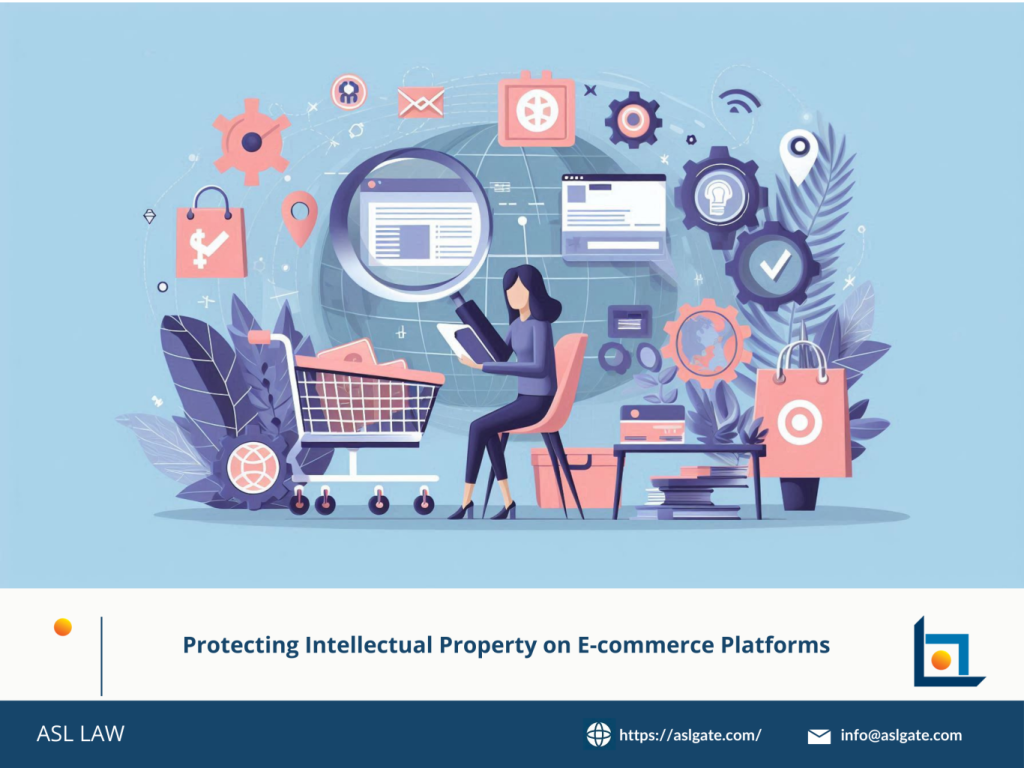With the explosive growth of E-commerce, businesses and individuals are increasingly leveraging online platforms to conduct their operations. However, this openness also creates opportunities for intellectual property (IP) infringement. From patents and trademarks to copyrights, various types of IP are at risk.
This article explores the various stages of IP protection on E-commerce platforms, analyzing the considerations and challenges associated with different types of intellectual property. It provides a practical guide for legitimate proprietors to protect their legal interests in the complex E-commerce environment.
Different Types of Intellectual Property Protection on E-commerce Platforms
The considerations and challenges of protecting IP on E-commerce platforms vary depending on the type of IP.
Patent Protection: Key Considerations
Patents include invention patents, utility model patents, and design patents. Invention patents are protected for 20 years, while utility model and design patents are protected for 10 and 15 years, respectively.
- When enforcing patent rights, platforms may require the submission of patent certificates and evaluation reports, particularly for design and utility model patents, as these are not subject to substantive examination.
- Patent infringement comparisons are highly specialized. Platforms may require detailed explanations to facilitate review. In some cases, platforms refer these cases to relevant IP administrative authorities for professional judgment.
- From the platform’s perspective, patent certificates issued by national IP offices are relatively straightforward to verify, but enforcing invention and utility model patents can be more complex due to their technical nature.
Trademark Protection: Key Considerations
Trademark proprietors can usually prove ownership by providing a trademark certificate. However, if a non-rights holder is enforcing the trademark, they must provide appropriate authorization documents.
- Trademark infringement often involves the sale of counterfeit goods or unauthorized use of registered trademarks on web pages.
- Trademark certificates, like patents, are issued by administrative authorities, making verification straightforward. Infringement cases involving highly similar or identical trademarks are easier to enforce.
- For cases where similarity is harder to judge, platforms may refer the matter to specialized IP authorities.
Copyright Protection: Key Considerations
Copyright registration certificates serve as preliminary evidence of ownership. However, since copyright registration does not involve substantive examination, platforms may require additional evidence, such as proof of prior creation.
- When enforcing copyrights, proprietors must provide both the copyright registration certificate and original evidence of creation.
- Copyright verification can be challenging due to the lack of substantive examination, requiring more extensive documentation.
- Copyright enforcement is relatively straightforward in terms of infringement comparison, as it often involves comparing text or images.
Recommendations for Protecting Intellectual Property on E-commerce Platforms
To strengthen IP protection on E-commerce platforms, proprietors should consider the following strategies:
- Advanced Registration: Early application, registration, or recording of IP rights is crucial for securing ownership.
- Proactive Monitoring: Proprietors should actively monitor E-commerce platforms for potential infringements, rather than relying solely on automated detection tools.
- Multiple Strategies: Proprietors should match their enforcement strategies with their goals, secure evidence in advance, and seek expert assistance when needed.
- Continuous Monitoring: Regularly review E-commerce platforms for infringements and take swift action to prevent the spread of counterfeit or infringing activities.
In the digital age, E-commerce platforms have become hotspots for intellectual property infringement. This article provides a comprehensive guide for legitimate proprietors, covering the considerations and challenges of protecting patents, trademarks, and copyrights online. It emphasizes the importance of early rights confirmation, proactive monitoring, multiple enforcement strategies, timeliness, and continuous monitoring. By following these recommendations, proprietors can more effectively safeguard their legal interests in the complex world of E-commerce.
ASL Law is a leading full-service and independent Vietnamese law firm made up of experienced and talented lawyers. ASL Law is ranked as the top tier Law Firm in Vietnam by Legal500, Asia Law, WTR, and Asia Business Law Journal. Based in both Hanoi and Ho Chi Minh City in Vietnam, the firm’s main purpose is to provide the most practical, efficient, and lawful advice to its domestic and international clients. If we can be of assistance, please email to [email protected].
ASL LAW is a top-tier Vietnamese law firm that provides in-depth legal advice in Vietnam and internationally. If you need any advice, don’t hesitate to get in touch with us for further information or collaboration.

 Tiếng Việt
Tiếng Việt 中文 (中国)
中文 (中国) 日本語
日本語

